Sudan total communications blackout continues
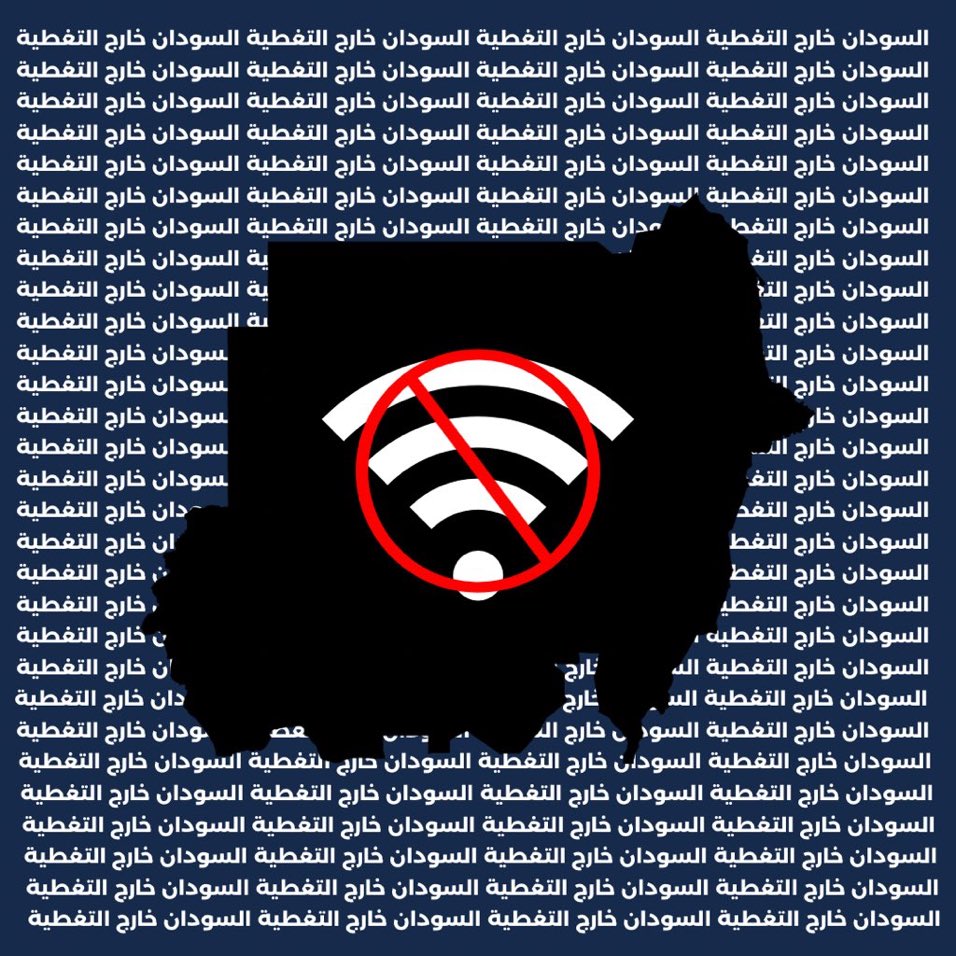
(Source: @Res_Wadmadani via X)
The total telecommunications and Internet blackout continues throughout Sudan for the third consecutive day today. Three civil society organisations jointly condemned the ongoing outages, calling it a “full-fledged crime against humanity”.
With the exception of land lines provided by Canar Telecom and Sudani, the entire country is witnessing a blackout, after Sudani and MTN stopped working six days ago, and Zain went down on Wednesday.
Videos posted today on social media showed people gathered in front of the Canar Telecom building in Port Sudan, capital of Red Sea state, hoping to get internet connectivity.
The Internet service interruption has completely halted operations at the civil registry, including issuing passports, and paralysed the banking system.
Online banking applications Bankak and Fawry are still operational, “but the network interruption has prevented most people from being able to use them,” sources reported to Radio Dabanga via a land line.
As of the time of writing, no official statement has been issued to explain the country-wide blackout.
In a post on X (formerly Twitter), Internet freedom watchdog NetBlocks reported that “live network data show a new collapse of internet connectivity in #Sudan, with leading mobile operator Zain now also falling largely offline”.
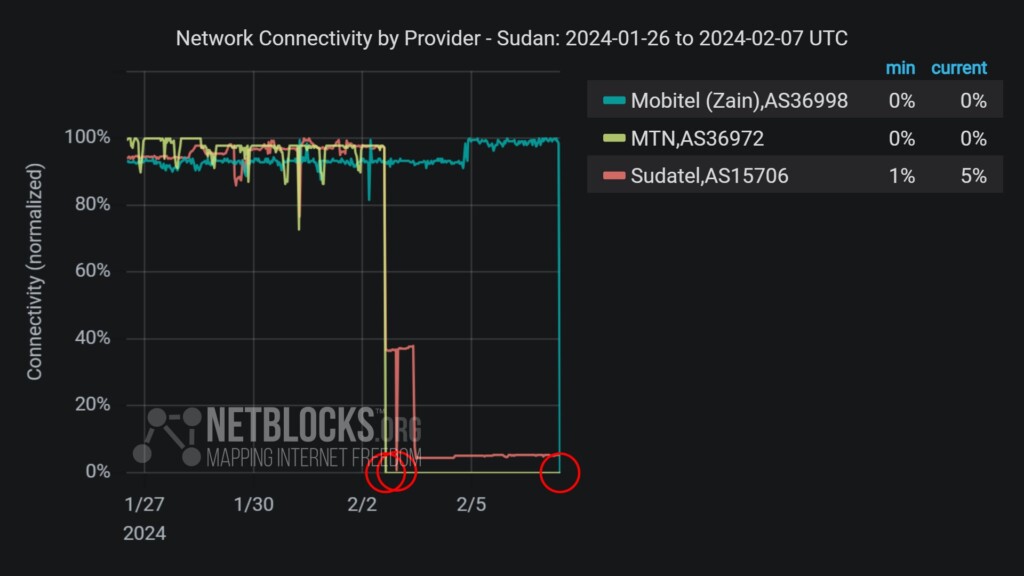
A government spokesperson said yesterday that works were underway to “reroute the network feeding system across Sudan through the sea” to avoid similar outages in the future.
However, telecommunications specialist Ammar Hamouda told Radio Dabanga that submarine cables “connect the Sudanese network to networks abroad, especially for the Internet and international calls, and have no link to telecommunications within Sudan”.
Communications and internet networks in large parts of Darfur have been cut off for months by the ongoing war, and parts of Kordofan, especially southern and western Kordofan, have been cut off for weeks. The outages have forced the people there to use the US Starlink satellite communication network, with Nyala, capital of South Darfur, as the hub.
‘Full-fledged crime’
The Sudanese Hadhreen initiative, the Sudanese American Medical Association (SAMA), and the Strategic Initiative for Women in the Horn of Africa (SIHA Network) yesterday jointly condemned the telecommunication blackout in Sudan.
The organisations accuse the RSF of being behind the shutdown, saying the disruption “adds to the many violations that have been committed” since the beginning of the war in mid-April of last year.
“This act constitutes a full-fledged crime against humanity and the rights guaranteed by international laws. It directly threatens the lives of civilians who rely almost entirely on banking applications and other solutions provided by telecommunication companies in their daily transactions.
“It also hinders the delivery of humanitarian aid, which threatens the lives of millions of civilians caught amidst the ongoing war in various parts of the country. In addition, it directly affects freedom of speech and access to information about what is happening on the ground in areas of armed conflict and the rest of Sudan.”
The three civil society organisations call on the international community to take concrete steps to pressure the RSF leadership into restoring the communication network and facilitating safe passages for workers.
Earlier this week, a legal advisor of the RSF denied responsibility for the outage, after the Sudanese Telecommunications and Postal Regulatory Authority accused the paramilitary group of shutting down the El Sudani and MTN data centres in Khartoum.
The Wad Madani Resistance Committees yesterday accused both the Sudan Armed Forces (SAF) and the Rapid Support Forces (RSF) of being behind the outages. “The shutdown of communications and the Internet in Sudan is a joint operation between the two parties to the conflict in the country in order to further blackout the media against the Sudanese people and is considered a flagrant violation of human rights and international law.”







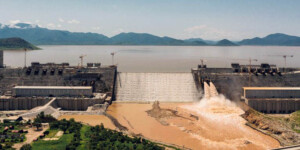
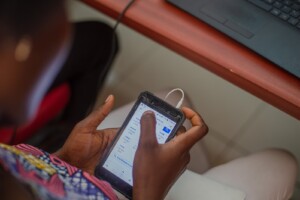
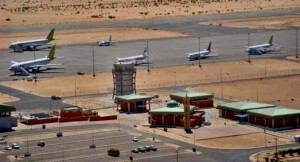

 and then
and then